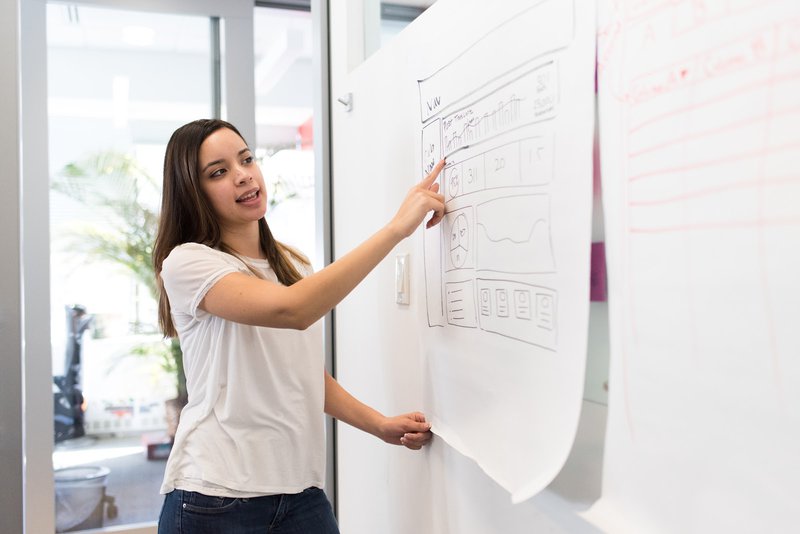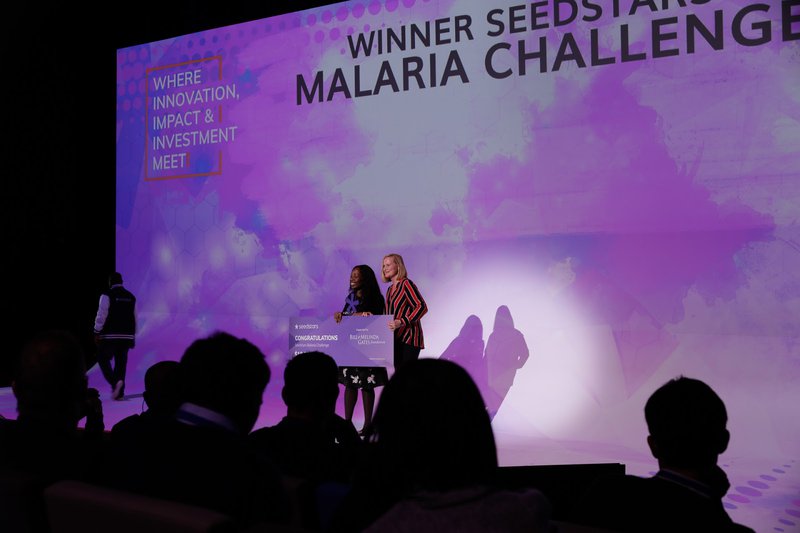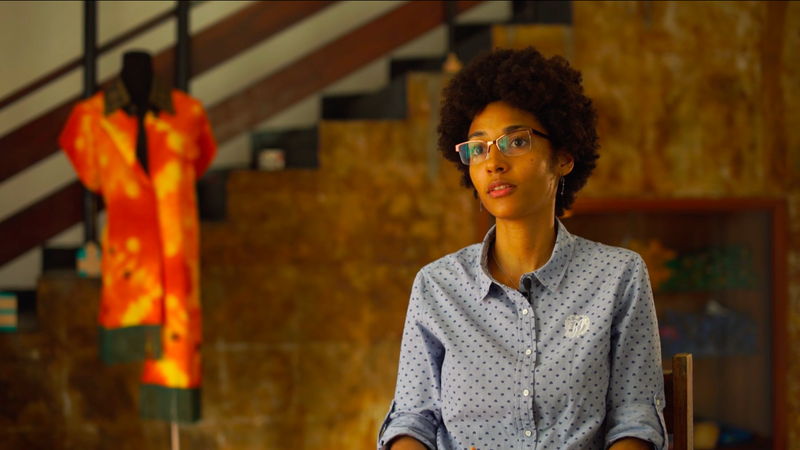
GLOBAL • TECHNOLOGY
Ilma Ibrišević
FEBRUARY 20, 2020
Women make vast contributions to economies across the world, whether that’s in businesses, on farms, as entrepreneurs, or by doing usually unpaid domestic work.
Despite that, women remain majorly and disproportionally affected by poverty, discrimination, and exploitation. Their participation in shaping economic and social policies is currently limited and their access to economic assets is often restricted.
Womenpreneurship, referring to female entrepreneurship, has enormous potential to foster economic development as well as be the catalyst for female empowerment, enabling women to rise and prosper in all walks of life through shifting the deep-rooted socio-economic power dynamics.
According to Woetzel et al. (2015), a “full-potential” scenario—in which women participate in the economy identically to men — would contribute as much as $28 trillion, or 26 percent, to annual global GDP by 2025. Female entrepreneurship also makes a strong contribution to the economic well-being of the family and community, as well as to the Millennium Development Goals (MDGs) and the Sustainable Development Goals (SDGs).

Small to medium-sized enterprises (SMEs) are a key driver of economic growth in general, and women-owned enterprises account for approximately 30-37 percent (8–10 million) of all SMEs in emerging markets. As such, women are the fastest-growing market segment.
Yet, gender gaps in female business entry and ownership in many economies worldwide are plenty. Indeed, less than one-third of LLC owners are women in the vast majority of economies. Although sole proprietorships are more frequently used by female entrepreneurs, only three economies have similar or equal numbers of women business owners relative to men.
Opening the Closed Doors
Entrepreneurs generally transform ideas into economic opportunities, fostering innovation and economic development.
While the number of female founders has been rising over the years, only a diminutive number of women make use of this opportunity. This is closely linked to restrictive access to capital.
Globally, men account for 92% of partners in the top 100 venture capital firms, and female-founded start-ups receive only 2% of total investments by venture capitalists. These disparities underscore the need for more women at all levels within startups.
The funding issue for women arises from a widely spread image that men are seen as more qualified, more capable, and hence more entrepreneurial. This is the case even though the result of a survey, executed by the Kauffmann Foundation, emphasizes that women entrepreneurs acquire 20% more in revenue with 50% less investment. Another recent study also pointed out how worse the situation is for black female founders – only 34 black female founders have been able to raise funding over $1 million.

In emerging markets, things are often challenging for female entrepreneurs in other ways too. For example, women sometimes lack knowledge in further financial handlings, or might even be restricted when it comes to owning property or opening a bank account.
Furthermore, there are also plenty of subtle cultural and social barriers that contribute to lower confidence levels among potential female founders, which impacts the rate at which they start businesses.
Rising Stars From Emerging Markets
Despite all hurdles, more and more investors and organizations are noticing the potential hidden among women entrepreneurs that are often not trusted or are denied access to financial funding.
Recently, Seedstars partnered with SAFEEM and GIZ to increase women’s participation to achieve an improved gender balance. The project is not only focused on achieving gender balance during the Seedstars World competition but also on catalyzing investments and training opportunities for women-led startups in Sub-Saharan Africa.Meet seven women-led startups that are providing solutions to burning issues across emerging markets. One such example is Medsaf, a medication marketplace for hospitals and pharmacies co-founded by Vivian Nwakah. Medsaf won the Seedstars Malaria Challenge, supported by the Bill & Melinda Gates Foundation at the Seedstars Summit 2019. They connect the medication manufacturers with hospitals and pharmacies while ensuring that every single product coming from a manufacturer is produced according to certain quality standards, helping save thousands of lives in Nigeria.

BeneFactors Ltd is a FinTech startup founded by Olivia Bryanne Zank. They are a factoring company providing tailored working capital solutions to firms in Rwanda. With their factoring services, Benefactors offers cash flow stability to small and medium-sized enterprises that can often risk going bankrupt due to liquidity issues. This way, they help stabilize millions of jobs in small and medium-sized companies since their owners don’t have to delay salaries as a result of unpaid invoices.Dr. Victoria Kisyombe is the founder of SELFINA, a company in Tanzania that provides micro-leasing to mostly widows and young girls. SELFINA has had a huge impact on Tanzanian society. In the past 11 years, SELFINA has economically empowered more than 25,000 women with a total credit worth approximately $16 million US dollars. Over 200,000 lives have been impacted through the benefits accrued. Women are now owners of their own businesses and more than 125,000 jobs have been created.In Peru, Mexico, and Colombia, Sully Siucho Diaz co-founded RebajaTusCuentas. The startup helps people make better mortgage loan decisions, helping them to not overpay when buying a home due to poor financial knowledge. RebajaTusCuentas also helps banks and financial institutions communicate better with their customers. Until now, they’ve generated more than $3.5 million in interest rate savings for their users, impacting the financial situations of many families in the Latam region.

Ma Htet Thiri Shwe founded MYEO (Myanmar Youth Empowerment Opportunities). MYEO aims to bring much-needed resources to young people in Myanmar to overcome personal, educational and professional development challenges. They do this by bridging the existing information gap on their web-based platform. MYEO has developed to become a comprehensive education content platform encompassing both professional skill development content (communication, critical thinking, creativity, leadership) and new opportunities (internships, scholarships, jobs, international conferences).
Karingana Wa Karingana is a Mozambican textile brand created in 2015 by Djamila Machava De Sousa and Wacy Zacarias. The company is dedicated to the custom design of prints for textiles and surfaces, with a modern approach. They also do textile consultancy for other designers offering African trends forecasting, advice on which types of fabrics and prints to use, or on what’s the best print method for their client’s project. Karingana Wa Karingana arose from the need for African prints created in Africa or by Africans, respecting the local customs and rescuing the textile tradition that has existed for several centuries across the continent.

Susanna Ingalls is the co-founder of Urban Point (UP). Urban Point serves as somewhat of an exposure company in Qatar, Kuwait, and Oman – offering local residents offers from local businesses ranging from beauty salons, restaurants, art studios, health clinics and many other types of service oriented businesses. Urban Point aims to provide maximum value to the businesses and consumers they work with, and eliminate the bulk of the costs borne by them.
Initiatives like Medsaf, BeneFactors, SELFINA, RebajaTusCuentas, MYEO, Karingana Wa Karingana, and Urban Point are not only promoting economic development and innovation in emerging markets but also – being led by female founders and co-founders – paving the way towards a more progressive and inclusive society.
Anyone that is determined to progress and boost an economy through entrepreneurial activity cannot ignore the sheer economic, social, and innovation potential of women entrepreneurship.
In many countries in emerging markets, where job scarcity and poverty are ubiquitous, these sprouting women-run startups can initiate a fundamental transformation.